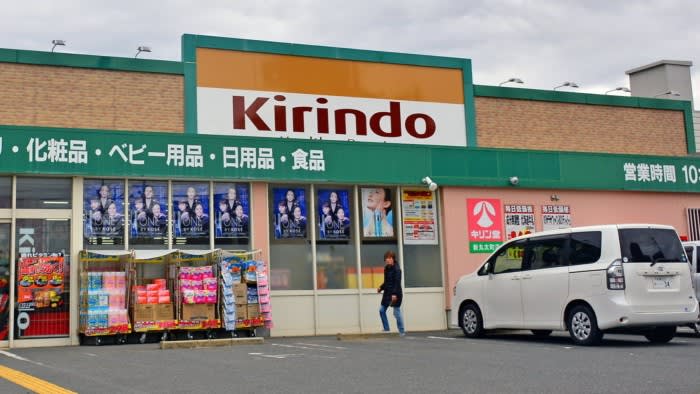One of the three deals Bain Capital has ever completed in Osaka, Japan’s third largest city, took a number of years to get over the line.
The takeover of drugstore chain Kirindo had all the hallmarks of a classic Japanese private equity transaction, and included negotiating with the 96-year-old founder.
“Of course, there is a problem with succession, with a lot of companies coming out of the drugstore business . . . so we have been suggesting that we can help both the succession and the growth strategy,” says Makoto Ono, private equity managing director in Japan for Bain. “But it took us about seven years.”
The length of time is of note, but that it was done outside Tokyo makes it even more unusual.
In the capital, companies have become accustomed to conversations with bankers, buyout executives and the activist investors that often lead the way. In Osaka and Kyoto, the rules of engagement remain very different. “When in Rome, you do as the Romans do, and that is exactly the attitude we are taking in Osaka as we expand,” says Atsuhiko Sakamoto, head of private equity in Japan for Blackstone, which is also making a push in the city.
Observers say the difference between Tokyo and elsewhere in Japan partly explains why Bain has sealed deals in Osaka only for Kirindo, Nihon Safety, a real estate rental service business, and, more recently, Mitsubishi Tanabe Pharma, a 340-year-old pharmaceutical group the US firm bought this year for $3.3bn.
“It takes time to build a relationship,” says Ono, adding that factoring in extra time is necessary in Osaka — and more so in the even more traditional city of Kyoto, where Bain has yet to seal a deal.
For some of the world’s largest private equity groups, however, the difficulty is both the opportunity and the point.
“In western Japan [home to many large corporations], a lot of businesses are more family-influenced so they can be much more traditional in running companies and also how they think about ownership,” agrees Sakamoto. “Private equity is still new to them so you have to build the relationships steadily . . . it’s an opportunity if you’re willing to invest your resources.”
Japan has won a reputation as one of the world’s hottest markets for private equity. Its companies, often cash rich or sitting on non-core assets ready to be monetised, are being targeted by buyout funds.
As Nicholas Smith, strategist at Citic CLSA, the Hong Kong-based investment group puts it: Japan is “a target-rich environment, with succulent valuations and painfully diffuse market share inviting consolidation through M&A — as well as sloughing off profit-killing non-core businesses to slash conglomerate discounts.”
But with competition heating up in Tokyo, and auctions between buyout groups forcing up prices, the bigger regional cities of Kyoto, Osaka and Nagoya are considered the next big bet for private equity.
“Osaka is something like four or five years behind [the capital], which means that in several years’ time, like in Tokyo, it’s highly likely that Osaka will experience and observe its boom,” says Hironori Momose, co-chairman of Bain’s Japan private equity team.
The bet is that building relationships in regional cities now could pay huge dividends later and allow private equity firms to avoid competition from rivals as they execute deals. “We want to be building relationships three to five years out in anticipation of when corporate action will happen so we will be in the best position to take action,” says Sakamoto.
The big private equity firms must meanwhile make their moves with less help from activist shareholders, which in Tokyo can quickly bounce companies into sales processes. The shareholders of companies in Osaka may be more stable than those in Tokyo, says Momose, with big local banks and insurers providing protection from unwanted guests in their capital structures.
Recommended

The Bank of Kyoto’s cross-shareholdings with companies such as video-game company Nintendo, for example, have long been seen as a bulwark against takeover, even if they are also bemoaned by shareholders keen to have capital returned and the holdings unwound.
For now, then, the largest buyout firms are slowly building their regional presence along with the trust they believe will lead to deals, albeit years down the road.
Smaller buyout firms might end up going even further afield than Osaka, Kyoto and Nagoya in search of similar opportunities, say industry insiders.
But for those the size of Bain and Blackstone, going ever deeper into the regions might be unattractive, not least because there are too few companies of the necessary size to make the investments pay off.
“For smaller private equity public funds, maybe it is possible. But for us, our size, we’ll start with Osaka and Kyoto,” says Sakamoto.


AloJapan.com